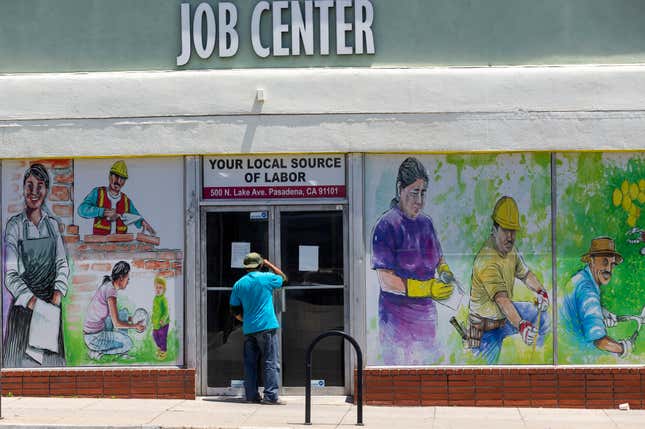Millions of Americans Lose Unemployment Benefits on Labor Day
The pandemic is far from over, but Congress has decided to let benefits lapse for some 10 million people
Work

In a grim coincidence, unemployment benefits for ended for some 10 million Americans on Monday, Labor Day, after Congress failed to take any meaningful steps toward extending the federal programs.
The Washington Post estimates that 7 million Americans lost all of their benefits while an additional 3 million lost the $300 weekly federal add-on to their state benefits. People in either boat, however, have been thrown into panic and uncertainty about how they’ll feed their families, pay bills, and make rent—especially with the recent suspension of the Biden administration’s eviction moratorium.
-

-

-

-

-

-

-

-

-

-

-

-

-

-

-

-

-

-

-

-

-

-

-

-

-

-

-

-

-

-

-

-

-

-

-

-

-

-

-

-








































